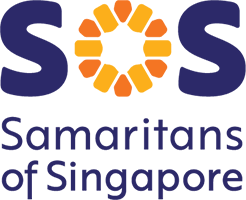SINGAPORE REPORTED 452 SUICIDE DEATHS IN 2020, NUMBER OF ELDERLY SUICIDE DEATHS HIGHEST RECORDED SINCE 1991
In 2020, Singapore reported 452 suicides, a 13% increase compared to 400 cases in 2019. This is the highest since 2012. Suicide deaths rose to 8.88 per 100,000 Singapore residents, up by 0.88 as compared to 2019.
The increase in the number of suicide deaths was observed across all age groups. For youths aged 10 to 29 years old and middle-aged adults aged 30 to 59 years old, suicide deaths increased by 7% from 2019. The number of elderly aged 60 and above who took their own lives reached a high at 154 deaths, a 26% increase from 2019.
Gasper Tan, Chief Executive of Samaritans of Singapore (SOS), expressed his concerns,“COVID-19 has severely affected the nation’s economy, lifestyle and mental health. We are extremely worried about how our elderly are coping during this public health crisis. During the pandemic period, the elderly were more likely to face social isolation and financial worries. Difficulty in constantly adapting to changes as well as prolonged feelings of loneliness may be devastating.”
SOS observed a slight dip in the number of calls made by the elderly to the 24-hour Hotline with 4,455 calls in FY2020, from 4,816 in FY2019. Among those who revealed their age, 17% of all calls were made by those aged 60 and above in FY2020 compared to 20% in FY2019. While there is an increase in the number of suicide deaths by the elderly in 2020, the number of calls received from this group decreased. SOS observed that the issues faced by our callers, which contributed to their state of distress during the pandemic, include difficulty to cope with loneliness and inactivity due to isolation, psychological distress and impaired social and family relationships.
Adjunct Associate Professor Lee Cheng, Clinical Director, Office of Population Health from Institute of Mental Health comments, “Some of the elderly are living alone and lack the support to cope with the pandemic. For example, while they wish to comply with the call by the government to stay at home as much as possible, they may still have to go out to get their necessities. Those who are used to attending social activities outside on a regular basis will also likely feel socially isolated during this period.”
“Since the pandemic, many in-person activities and initiatives for the elderly have moved digitally. Those with limited proficiency with technology may find themselves lost and helpless. Given the uncertainty of how long the pandemic will last, it is imperative that we continue to build on existing efforts and find new ways to support the mental health of the elderly. While we work to make help seeking more convenient, SOS also seeks to collaborate in more partnerships with the community to support the elderly.” Gasper Tan comments.
Associate Professor Helen Ko who teaches Master and PhD in Gerontology programmes at the Singapore University of Social Sciences further shares, “For the elderly who are lonely and socially isolated, find as many ways as possible to connect with them. Very often, most elderly persons want to hear a human voice and they long to hear the familiar voice of a loved one. For those who are not digitally savvy, please be very patient as they may need more time to pick up digital skills.”
SOS CHANGES 24-HOUR HOTLINE NUMBER TO 1-767
SOS will officially launch its new national four-digit hotline number on 26th July 2021. Aimed to make help seeking easier and more convenient when in need, the public will be able to reach the 24-hour Hotline by dialling 1-767 (1-SOS).The 24-hour Hotline will remain toll-free and the public can still reach SOS at 1800-221 4444.
Since 1969, SOS has been providing emotional support to many through our hotline. Last financial year, the organization attended to a total of 39,779 calls. The acknowledgment as a special service in the community and the assignment of the new four-digit short code marks a humbling milestone for SOS.
SOS recognises that among those who have suicide ideations, there are still many who are hesitant and fearful of reaching out for help. Gasper Tan adds, “While we work towards improving and expanding our services, there are still many in the community who are unaware of the existing avenues for help seeking. With the shortening of the hotline number, 1-767 will be easier to recall for those overwhelmed and in crisis.”
The support of these organisations – NCSS, IMDA, Singtel, Starhub, M1, TPG, JCDecaux and SMRT Corporation have been integral to the success of the four-digit hotline launch.




